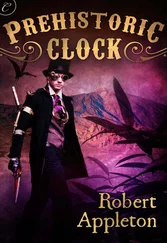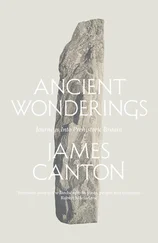THEN, as the need arose when certain pigments started running out, the precious minerals collected were carried out into the sunlight so that tallow would not be burned unnecessarily and because the artificial light from the torches also made the colors untrue — how can you tell yellow ochre from rose ochre in this fiery ambiance? They also brought out the mortars and grindstones. Everything was ready at last, materials and tools spread out in front of the cave, what were they waiting for to begin? Dusk also subdues colors; how can you tell burnt sienna from burnt umber in this end-of-the-world illusion? Act quickly, then, as long as the sun is round, take advantage of the season of light, afterward it will be impossible, there’s never any daylight in autumn, the winter night dines at noon on the moon with the night to come. It would be foolish to delay any longer. Let’s go.
My telephone, disconnected, has become the handsome object of meditation it was until 1876. So it must be the doorbell interrupting me now. They call it a carillon ; I don’t. I wait a moment. They persist. They grow impatient. The bell is pointing its threatening finger at me. I am obviously its target. It’s aiming at me. No doubt about it, I’m the one. They want to see me. They won’t leave without having seen me. It’s too late to pull out the wires. Besides, they’ll start to worry if I don’t answer: a skilled locksmith, overequipped with picklocks, skeleton keys, keys for tumblers and combination locks, bit keys and Zeiss keys, tubular and dimple keys, double- and four-sided keys, with his bulky satchel slung across his shoulder, will take a three-yard running start and break down my door, best to avoid that. I slide open the bolt: come in, Professor, don’t hang about outside in the rain on such a cold and windy day. The professor’s round, shiny face expresses one emotion after the other, already anger is replacing astonishment. It seems I’ve changed a great deal. I’m hardly recognizable. It was not enough to neglect your work, now you’re also neglecting yourself. That takes the cake, Glatt adds. I thank him for bringing dessert, really, you shouldn’t have. For once I make a little joke, and he is not amused. His anger rises again, pink, red, scarlet, a constant flow as if he were truly drawing from a well of blood: you haven’t shaved, and your hair, where’s your cap, and that uniform! Apparently I look a lot like a bear.
We are getting to the point of his visit. They are trying to find a replacement for me. They no longer listen to me on high. They’ve stopped believing in me. I’ve lost their trust. I’ve abused it. I don’t respect my commitments. I never keep my promises. I am definitely not the man for the job. Glatt has come round to their opinion. This time, he won’t defend me. I protest. I refute the accusations. Lies, loathsome lies. My words and actions have been in perfect accord since the start, in such harmony that you cannot tell one from the other. I would not, for example, be able to lift my little finger — and nothing is lighter than a little finger — if I didn’t say I was lifting my little finger, and no sooner said than done, said and done, said, done, said therefore done, let me prove it: if I say slap , Glatt reels, if I repeat slap , he strokes his cheek, slap, slap , he moans pitifully, slap , and his ear bleeds, slap, slap, slap , his big head bobs, did I happen to mention my silver signet ring, now that’s done, it’s been said, and his lip swells, a tooth pops out, slap, slap , both his eyes close, slap, slap , he begs for mercy, slap, slap, slap , here, let me walk you to your car. That’ll teach him. All it took was one word from me to get rid of him, permanently.
I yank out the doorbell wires as well. We shall no longer be interrupted. Everything starts with a little basic do-it-yourself work, a few very simple gestures on which the rest of the enterprise will depend; this is why I don’t want to neglect a single one (by now my methods are known); first, clean the fragments of moss- or dirt-encrusted rock with a knife, strip them and then I run them briefly under water to remove the remaining impurities, the sand and pollen dust coating them; I dry them on my jacket, then reduce them to a powder, the most friable I pound in the mortar with a flint, the hardest among them are ground on a flat rock, the millstone crushes them. Then, holding my breath, I pour the pigments according to kind and color into coffee bowls that were meant to be sold to the cave’s visitors as souvenirs so they are decorated with an anthropomorphized bison standing in front of an easel holding in its left paw a palette and in its right the tip of its tail with which it is painting — the drawing’s comic effect, nonexistent at first, I grant you, stems in fact from repetition: one morning, several days after you’ve acquired the bowl and have been drinking from it breakfast after breakfast, as you are bringing it to your lips, you will be overcome by an uncontrollable fit of laughter. But Boborikine’s desperate sales pitch fooled no one. In the end he put these ridiculous bowls in the junk room, stacked against the back wall, one nested in the other. I carried a dozen or so down to the cellar for my preparations because the earthenware the Magdalenians used did not reach us, or rather, it did, but in such a state, pulverized, containers reduced to their contents without loss of matter — and this, might I add in passing, is how we recognize perfect forms.
Not so fast. Sometimes the sheen of its outer beauty can compensate for an object’s compositional defect: the primitive pine picket fencepost also exists in Panama rosewood. But the underlying lie achieves the status of truth in the eyes of the naïve with, as a result, serious, long-lasting errors in judgment of which I shall broach only one here, a direct consequence of this disjunction: the titmouse is a female rodent. Whereas the Magdalenians’ simple terra-cotta bowls did not lie about their contents and differed from them only as a result of a circumstantial rigidity always about to fall to pieces, which indeed happened, as I said. My twelve bowls are now filled with powder. I’m talking, talking, but I am not all talk, I’m action too, the more I talk the more active I am. Our best guess is that the Pales painters thickened their colored pigments with animal fat; these same sacrificed animals became the immortal heroes of the wall compositions: reindeer or bison in aspic, seared in their juices, the flow of waters rich in calcium salts a final fixative for the figures. True, I hardly have time to devote to the hunt, but my own body as deep as a well will provide me with everything I need, an abundance of two other proven binders — neither my fat, which I could not, in all practicality, give up, nor my blood, already rare and in fact it can only coagulate itself and cracks as it dries. No, I shall use saliva and urine, the most efficient of binders as everything proves, to quote only the factual statements that come out of my mouth (the more I talk, the more active I am) and the sublime adamantine concretions that form on the slate slabs of those public lavatories in which men on the go have been relieving themselves for generations, relentlessly, each one modestly adding his little precious stone to the edifice that grows and grows and will defy time. In this way, the demands of nature that afflict and humiliate us will at long last contribute to our greatest glory. Case in point: Leonardo da Vinci himself was not loath to mix his urine with his color preparations in order to fix for eternity certain fleeting smiles. That’s the solution. No more hesitating. I’ll pee in the bowls. From century to century, while all the trades overhaul themselves and ditch their old practices for new technologies, the imperturbable artist sticks to the two or three actions that matter.
Читать дальше












